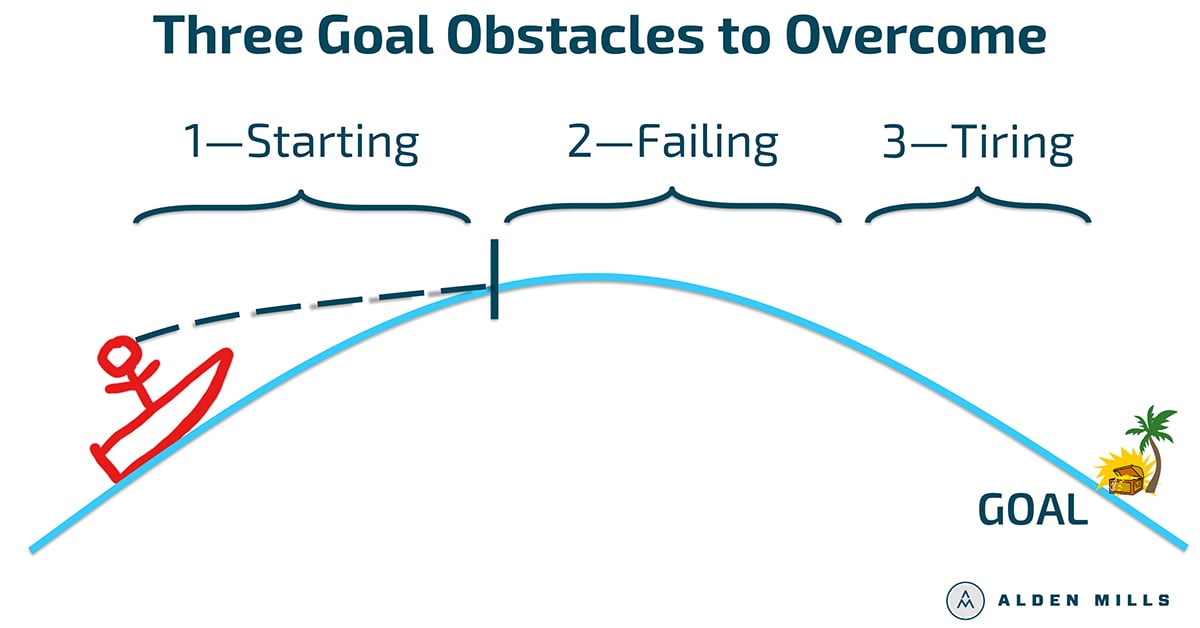After leaving SEAL Team, I've dedicated the remainder of my life to commission-based sales. My passion lies not just in the thrill of the sale itself, but in empowering those in the "eat what you kill" sales environments with the tools they need to thrive. This article stems from my desire to share insights and strategies that have helped me and could help others in similar roles. The focus here is on the crucial aspect of persistence—how to keep pushing forward despite the inevitable rejections and challenges. My goal is to equip commission-based sales teams with the necessary mindset and techniques to remain unstoppable in their pursuit of success.
Sales as a Leadership Challenge
Sales inherently poses a test of leadership skills. Your personal leadership style plays a vital role in your ability to lead others effectively—capturing their attention, building trust, and ultimately, winning their business. This fundamental concept was at the heart of a 90-minute customized sales leadership keynote I recently presented, deeply resonating with the audience. My approach to crafting keynotes is meticulous and tailored, involving early groundwork, engaging with diverse stakeholders, thorough research, and immersive audience interactions. This specific keynote earned recognition at an awards ceremony, emphasizing the significance of authentic connections in sales that demand dedication and effort. Its success lay in offering practical solutions to common challenges faced by sales professionals: initiating actions, overcoming setbacks, and battling fatigue.
Keynote Experience and Analogy
In my speaking and coaching roles, I often employ visuals, analogies, metaphors, and stories to demonstrate intricate concepts, enhancing their relevance and impact. One analogy that particularly strikes a chord in the sales realm is that of embarking on an ocean voyage. Picture yourself as the captain of a ship, setting sail from familiar waters towards an unknown destination. This voyage symbolizes a salesperson's transition from the familiar to the unfamiliar—a metaphorical journey of pursuing new clientele. It entails leaving behind the comfort of the known to confront the uncertainties of a potential new account, addressing the obstacles encountered in the pursuit of this fresh "destination."
Key Components to Successful Selling
Achieving success in sales requires a strategic approach that encompasses key elements essential for consistent performance. The following three components form a comprehensive approach to successful selling. By focusing on creating a repeatable process, committing to continual improvement, and cultivating the persistence to overcome challenges, sales teams can build a solid foundation for sustained success.
1. Having a Repeatable Process
The key to a successful sales strategy is having a process that works consistently across various situations and clients. A proven sales process gives salespeople a clear path to follow from the first contact to closing a deal. It's not about limiting creativity but providing a reliable framework that can be tailored to each sale. While there are many proven processes available, the important thing is to choose one that matches your team's objectives, values, and the nature of your product or service. Teaching this process is the initial step in creating an organized, effective sales team, setting a strong foundation for sales success by ensuring everyone knows the best practices for converting sales.
2. Continually Improving
Sales is a dynamic field; what worked yesterday may not work tomorrow. Continuous improvement is key. It means consistently assessing and refining your sales process, learning from every client interaction. This iterative approach helps sales teams adapt to market changes, customer preferences, and competition. It also promotes curiosity and resilience, pushing salespeople to try new tactics. By seeking ways to improve, sales teams boost effectiveness and efficiency, leading to better outcomes and higher performance.
3. Persisting
One of the toughest parts of sales is the need to keep going despite rejection and obstacles. Persistence is key in distinguishing good salespeople from great ones. It's all about staying motivated and driven, even when things don't go as planned. This is where coaching comes in. Effective coaching helps salespeople build the resilience to overcome challenges. Coaches offer support and guidance to navigate obstacles, provide strategies to handle rejection, and keep the sales momentum going. Additionally, coaching assists salespeople in setting achievable goals, celebrating small victories, and learning from losses to stay dedicated and motivated on their sales journey. Persistence, supported by coaching, empowers sales teams to push through difficult times, emerge stronger and more skilled, and tackle the next challenge with confidence.
Overcoming Major Sales Obstacles
In transitioning from the disciplined world of SEAL Team to the competitive realm of commission-based sales, I've faced various challenges. Reflecting on these experiences, I've pinpointed three main obstacles every salesperson encounters: starting, failing, and tiring. Let me share a short story that sets the context for these hurdles.
Recently, I had the opportunity to share my insights with 300 insurance salespeople in Dubuque, Iowa, representing one of the United States' largest and oldest privately held insurance brokers, with a storied legacy spanning over 120 years. This company has not only developed a sales process that is deeply intertwined with its culture but also faces the unique challenge of how to persist in the face of complex sales engagements. These engagements require not just in-depth knowledge but also lengthy discussions to build trust and prove value to clients—a process that demands continuous improvement and adaptation.
The salespeople's struggle is not with understanding what needs to be done but with the resilience required to keep moving forward. This challenge resonates with my own experiences in sales, where perseverance and the ability to lead oneself through continuous learning and self-improvement are critical. The company sought my expertise not to delve into the intricacies of their business but to equip their sales team with leadership strategies that empower them to navigate their daily challenges more effectively. This involves a comprehensive understanding of the industry and their clients' evolving needs, underscoring the importance of not just enduring but thriving amidst the demands of an ever-changing sales landscape.
1. Starting
The first major hurdle is starting. It's about overcoming the inertia and the comfort of the familiar to embrace the new and unknown. In my early days of sales, I, too, felt the lure of the "if it ain't broke, don't fix it" mentality. But I quickly learned that this mindset anchored me in a harbor of mediocrity. Like setting sail from a safe harbor, starting each day with a "full steam ahead" attitude was crucial. I had to convince myself every morning that despite the uncertainties ahead, moving forward was the only way to discover new opportunities. This realization came from a lesson during my SEAL training, where the power of negative hypotheticals convinced half of the 122 SEAL candidates to quit before we even started official Navy SEAL training. Sales is the same challenge, so many “quit” by not fully committing themselves to the moment. When they don’t fully commit, they create their own self-fulfilling prophecy of “I’m no good at sales” or “the client wasn’t going to buy from me, so why try (before even trying!)?” Starting is the number one most important first step in becoming unstoppable at selling.
2. Failing
Then comes failing. Every sales journey is akin to navigating through uncharted waters, where losing sight of land is part of the voyage toward new destinations. I've faced moments where, despite all efforts, things didn't go as planned. Clients hesitated, deals fell through, and unexpected competitors emerged. These setbacks were disheartening, but they taught me an invaluable lesson: failure is not the end but a chance to learn, adapt, and grow. Embracing this Unstoppable Mindset enabled me to see each failure not as a setback but as a stepping stone to refining my approach and strategy. This mindset encourages us to 'tack' or change course when necessary, not retreating to the safety of familiar shores but instead using these experiences to refine our approach and strategy. Thus, navigating the sales landscape requires resilience, a willingness to face challenges head-on, and the ability to transform obstacles into opportunities for personal and professional growth.
3. Tiring
Lastly, tiring. Sales is indeed an athletic event, requiring stamina and resilience. There were days when the sheer volume of rejections and the length of sales cycles weighed heavily on me, tempting me to ease up on my efforts. Yet, I learned that true growth and success in sales come from pushing beyond these moments of exhaustion. Just as in my SEAL Team days, where physical and mental endurance were crucial, in sales, recharging and recommitting to the goal are essential. Finding ways to rejuvenate, whether through physical activity or mental breaks, helped me overcome burnout and continue pursuing my sales objectives with renewed vigor. It's challenging to surpass your perceived limits, but top salespeople excel by reflecting on progress, leveraging outcome accounts for motivation, and reminding themselves of their end goals. Whether facing extended sales cycles or a high number of rejections, dealing with exhaustion is a significant hurdle every salesperson must overcome on the path to sales success.
These three obstacles—starting, failing, and tiring—shape the sales journey. They test our resolve, our adaptability, and our endurance. But by confronting them head-on, armed with the lessons they teach, we can navigate the challenging waters of sales with confidence and resilience.
Conclusion: Empowering Sales Teams
Leading commission-based sales teams to excel is more than a mission—it's a journey mirroring the discipline and perseverance from my time with SEAL Team. This path is filled with challenges: starting fresh daily, confronting failures, and pushing through fatigue. Yet, these hurdles mold the strongest leaders and resilient sales teams.
The strategies shared in this piece, blending military and sales insights, aim to empower sales pros to lead decisively, adapt swiftly, and persist with unwavering determination. Navigating uncharted waters parallels how sales leaders guide their teams through the uncertain seas of commission-based sales with courage, foresight, and a commitment to excellence.
Unstoppable sales teams refine their processes, embrace continuous learning, and persevere through obstacles. This pursuit of success, supported by effective leadership and a nurturing culture, turns challenges into growth opportunities.
In the competitive realm of commission-based sales, our journey showcases resilience, adaptability, and commitment to greatness. With the right mindset, strategies, and spirit, we can guide our teams to remarkable success, turning obstacles into stepping stones to victory.
Let this article serve as a practical and inspiring resource for sales leaders and teams aiming for enduring success. The path may be tough, but the rewards of perseverance, leadership, and shared triumph are unmatched. Together, we are unstoppable.

